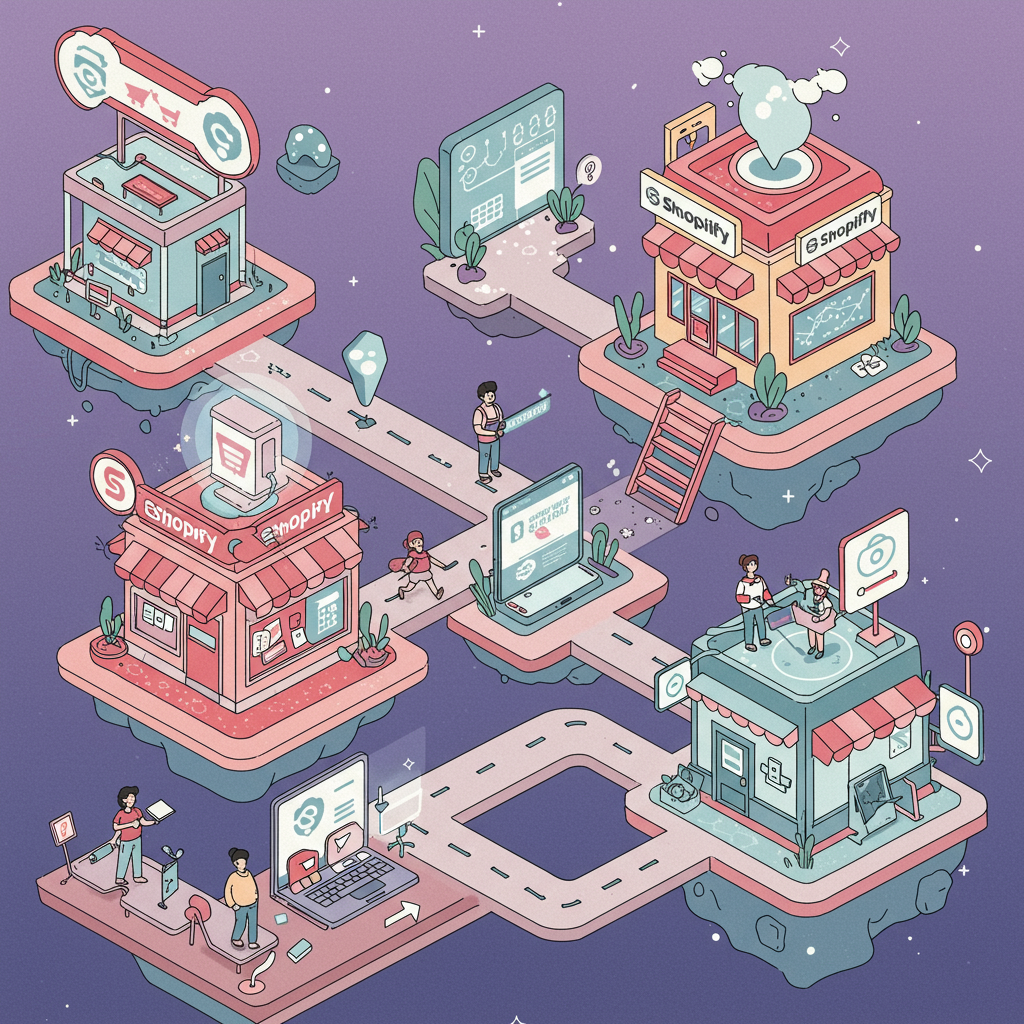Exploring the transformative potential of Decentralized Autonomous Organizations for merchants on the Shopify platform.
As a merchant navigating the ever-evolving landscape of e-commerce, I’m constantly looking for the next big thing that can empower businesses like yours and mine.
Today, I want to talk about something truly revolutionary: Decentralized Autonomous Organizations, or DAOs.
You might have heard the term floating around in tech circles, often associated with blockchain and cryptocurrencies.
But what exactly are DAOs, and more importantly, how could they profoundly impact your Shopify store and the future of online retail?
At its core, a DAO is an organization represented by rules encoded as a transparent computer program, controlled by the organization’s members, and not influenced by a central government.
Think of it as a company run by code and community, rather than a traditional hierarchy.
Decisions are made through proposals and voting, all recorded on a blockchain, ensuring transparency and immutability.
This means every member has a say, and every action is visible to everyone.
Now, let’s bridge this concept to Shopify.
Imagine a future where the very platform you use, or even a collective of stores, is governed by its users – by merchants like us, and even our customers.
This is where the idea of DAOs shaping Shopify’s future becomes incredibly exciting.
One of the most significant roles DAOs can play is in governance.
Currently, Shopify makes decisions about its platform, its fees, its features, and its policies.
While they do an excellent job, these decisions are centralized.
A DAO could introduce a model where merchants collectively vote on new features, fee structures, or even dispute resolution mechanisms.
This would give us, the users, a direct voice in the platform’s evolution.
It’s about moving from a ‘platform-as-a-service’ to a ‘platform-as-a-community-owned-asset’.
Another powerful aspect is community ownership.
Imagine a DAO that owns a collective of Shopify stores, or even a portion of the Shopify platform itself.
Members of this DAO could own tokens that represent a share in the collective’s success.
This means if the collective thrives, all token holders benefit.
This model fosters a deep sense of shared responsibility and mutual success.
For individual merchants, this could mean access to shared resources, collective marketing efforts, or even bulk purchasing power negotiated by the DAO.
Think of it as a highly advanced, digitally native co-op.
Furthermore, DAOs can revolutionize how we fund and launch new products or even entire brands.
A product DAO could pool resources from its members to develop a new line of sustainable goods, with members voting on designs, suppliers, and marketing strategies.
This democratizes the entire product development lifecycle.
It moves away from traditional venture capital models and puts power directly into the hands of the community.
The transparency of DAOs is also a huge benefit.
Every transaction, every vote, every decision is on the blockchain, making it incredibly difficult for corruption or hidden agendas to thrive.
This builds immense trust within the community, which is vital for any successful collective endeavor.
Of course, implementing DAOs on such a large scale isn’t without its challenges.
There are technical hurdles, regulatory uncertainties, and the need for robust, user-friendly interfaces.
Education is also key; many merchants are still new to these concepts.
However, the potential benefits for merchants are too significant to ignore.
Imagine a future where your voice truly shapes the tools you use, where your success is directly tied to the success of a broader, community-owned ecosystem.
This isn’t just about new technology; it’s about a fundamental shift in how businesses are structured and operated.
It’s about empowering the individual merchant and fostering a truly collaborative e-commerce environment.
I believe DAOs offer a path towards a more equitable, transparent, and community-driven future for e-commerce.
They could redefine what it means to be a merchant, moving us from mere users to active owners and decision-makers.
What do you think about this vision for the future of e-commerce and Shopify?
The journey is just beginning, but the possibilities are truly limitless.
As we continue to explore these decentralized models, I encourage you to stay informed and consider how these innovations might one day empower your own Shopify business.
The future of online retail might just be in our collective hands.






